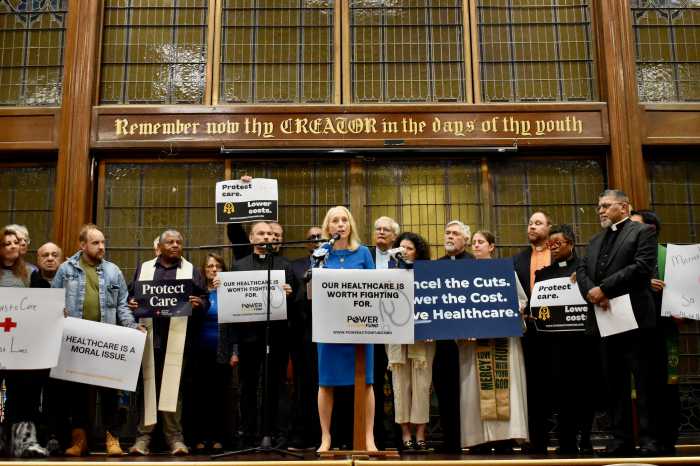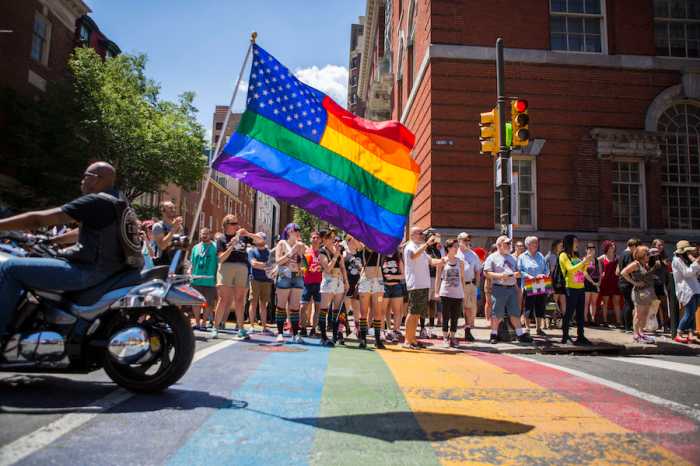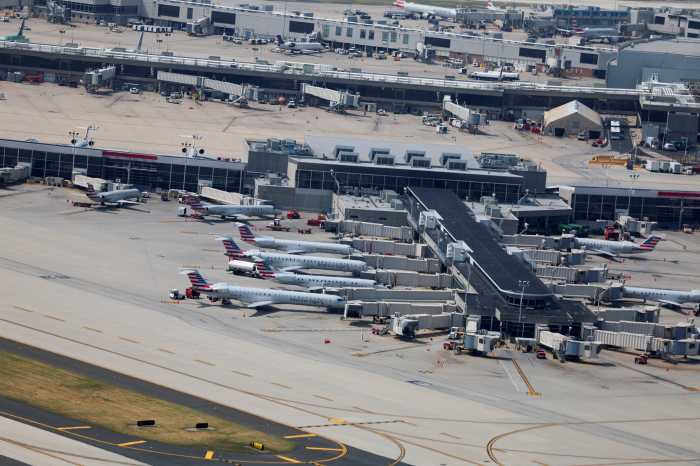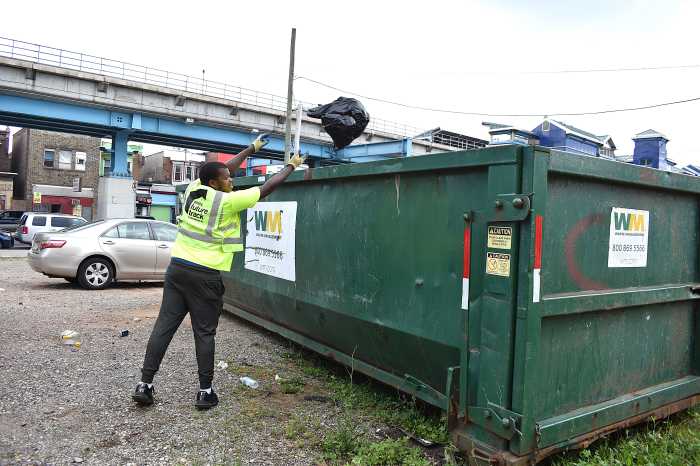A federal call to temporarily halt administration of the Johnson & Johnson COVID-19 vaccine should not significantly impact Philadelphia’s push to inoculate people in priority groups and, beginning next week, all adults, city leaders said Tuesday.
Hundreds of appointments were canceled at clinics around the city in the wake of the U.S. Centers for Disease Control and Prevention and Federal Drug Administration’s recommendation, which was issued Tuesday morning.
Philadelphia Health Commissioner Thomas Farley said a backlog of the Pfizer-BioNTech vaccine should be able to fill in the gaps left by the J&J decision. Officials are also hoping to receive more Pfizer doses in the coming weeks
“I don’t think it changes it that much,” he told reporters. “This is a setback, but I would consider it to be a small setback.”
Officials, worried about vaccine hesitancy, continued to urge residents to get inoculated, noting that the FDA and CDC guidance does not apply to the Pfizer or Moderna vaccines, which were developed using different technology.
Federal regulators are set to hold an emergency meeting Wednesday to examine six cases of people who were diagnosed with dangerous blood clots after receiving the J&J shot. All cases occurred in women between the ages of 18 and 48 and symptoms were documented 6 to 13 days after vaccination, according to a joint CDC and FDA statement.
In the statement, the agencies said the side effects “appear to be extremely rare” and that their recommendation was coming from “an abundance of caution.” More than 6.8 million J&J doses have been administered.
Anyone who received the J&J vaccine within the past three weeks and has a severe headache, abdominal pain, leg pain or shortness of breath should seek medical attention, the CDC and FDA said.
Pennsylvania and Philadelphia followed the guidance shortly after its release, with state officials telling vaccine providers to prepare to hold J&J doses through Tuesday, April 20, at the earliest.
Farley said he is not aware of any incidents involving blood clots and the J&J vaccine in the city.
“These events are extraordinarily rare,” he said. “Anyone is much more likely to have a medical complication from COVID-19 than a medical complication from the Johnson & Johnson vaccine.”
Philadelphia passed 1 million COVID-19 vaccine doses administered Tuesday, though a press event with Mayor Jim Kenney to mark the occasion was canceled because the clinic was distributing J&J doses.
Only 26,175 J&J doses have been administered in the city, though the one-shot vaccine was seen as critical to speeding up the city’s — and country’s — vaccine roll-out.
The Federal Emergency Management Agency vaccination site at the Pennsylvania Convention Center wrapped up second doses Monday and had planned to begin using the J&J vaccine. Instead, Farley said, it has pivoted to using the Pfizer vaccine.
FEMA is set to leave Center City by the end of April; however, city leaders are now asking federal officials to remain at the location for at least four more weeks. That would allow for three weeks of first-dose clinics, followed by three weeks of second doses.
There’s been no response to the request, but Farley said he is “optimistic” about the extension.
A smaller federally-backed mass vaccination site at Esperanza’s campus in Hunting Park closed Tuesday. It opened Saturday and had been distributing over 1,000 doses of J&J vaccine on a daily basis.
Farley said it, too, will move to Pfizer and be open from noon to 4 p.m. Wednesday for a mix of appointments and walk-ups.
Several city-run neighborhood sites that were administering the J&J shot, including the clinics at 7800 Ogontz Ave and the Salvation Army in West Philadelphia, will remain closed “until we make other arrangements,” Farley said.
Philadelphia still plans to make all adults eligible for the vaccine Monday. State leaders made the move Tuesday, six days ahead of schedule, citing available appointments and a desire to inoculate college students before they leave campus.
“We do want to let people who are over the age of 65 have a few more days to get vaccinated before they have to compete with all the other people who are under age 65 and don’t have medical conditions,” Farley said.
Healthy people under the age of 65 who do not work in an essential job can start making their appointments for next week, he added.
A total of 436,500 Philadelphia residents, or 34.4% of the city’s population ages 16 and older, are at least partially vaccinated, according to a health department dashboard.
CDC data, which includes city residents who were inoculated elsewhere, shows that 338,449 Philadelphians and 46% of those over 65 are fully vaccinated.
Meanwhile, coronavirus case numbers may be plateauing after several weeks of increases. Last week, the city averaged 511 cases a day with a 6.7% positive test rate, compared to the prior week’s 562 daily cases and 9.2%.





























